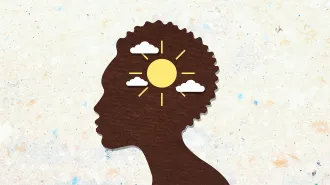Sarcasm looks the same in the brain whether it’s words or emoji
No words needed to convey irony ;-)

WINK WINK Brain activity linked to recognizing verbal sarcasm also spikes when reading a sentence that ends with a winky-face emoji.
vector_brothers/Shutterstock







